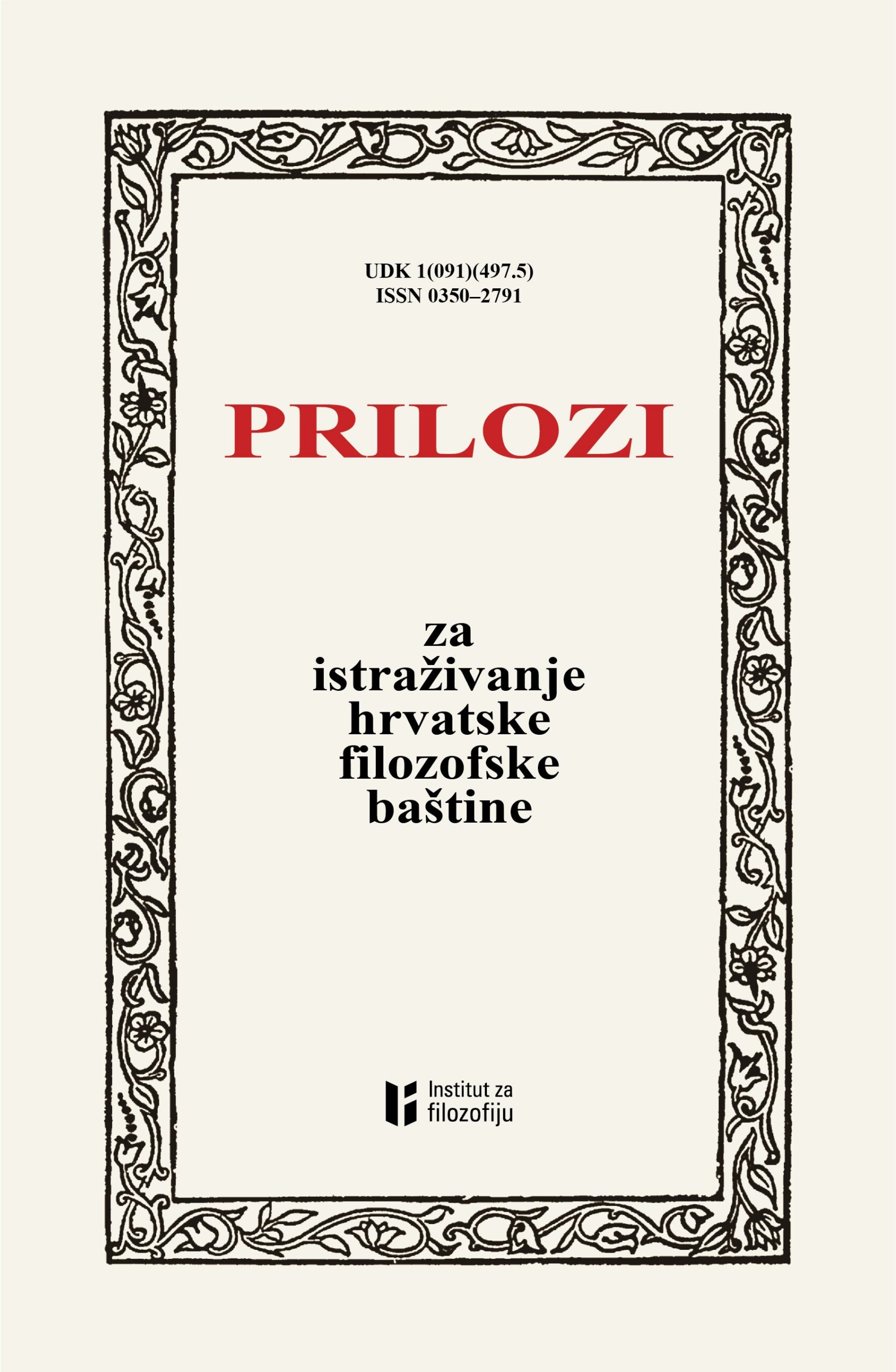ISSN 1847-4489 (electronic)
ISSN 0350-2791 (print)
DOI 10.52685/pihfb

The Contributions to the Research of Croatian Philosophical Heritage is an open access, academic and scientific journal intended for all researchers of the history of ideas, the history of philosophy, and especially the history of Croatian philosophy and the history of philosophy of neighboring countries.
The journal is published twice a year.
The journal Contributions to the Research of Croatian Philosophical Heritage is available in open access.
The journal Contributions to the Research of Croatian Philosophical Heritage does not does not charge any fee for submission or for the peer review and publishing process.
Publisher: Institute of Philosophy